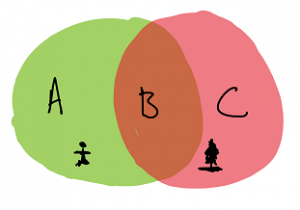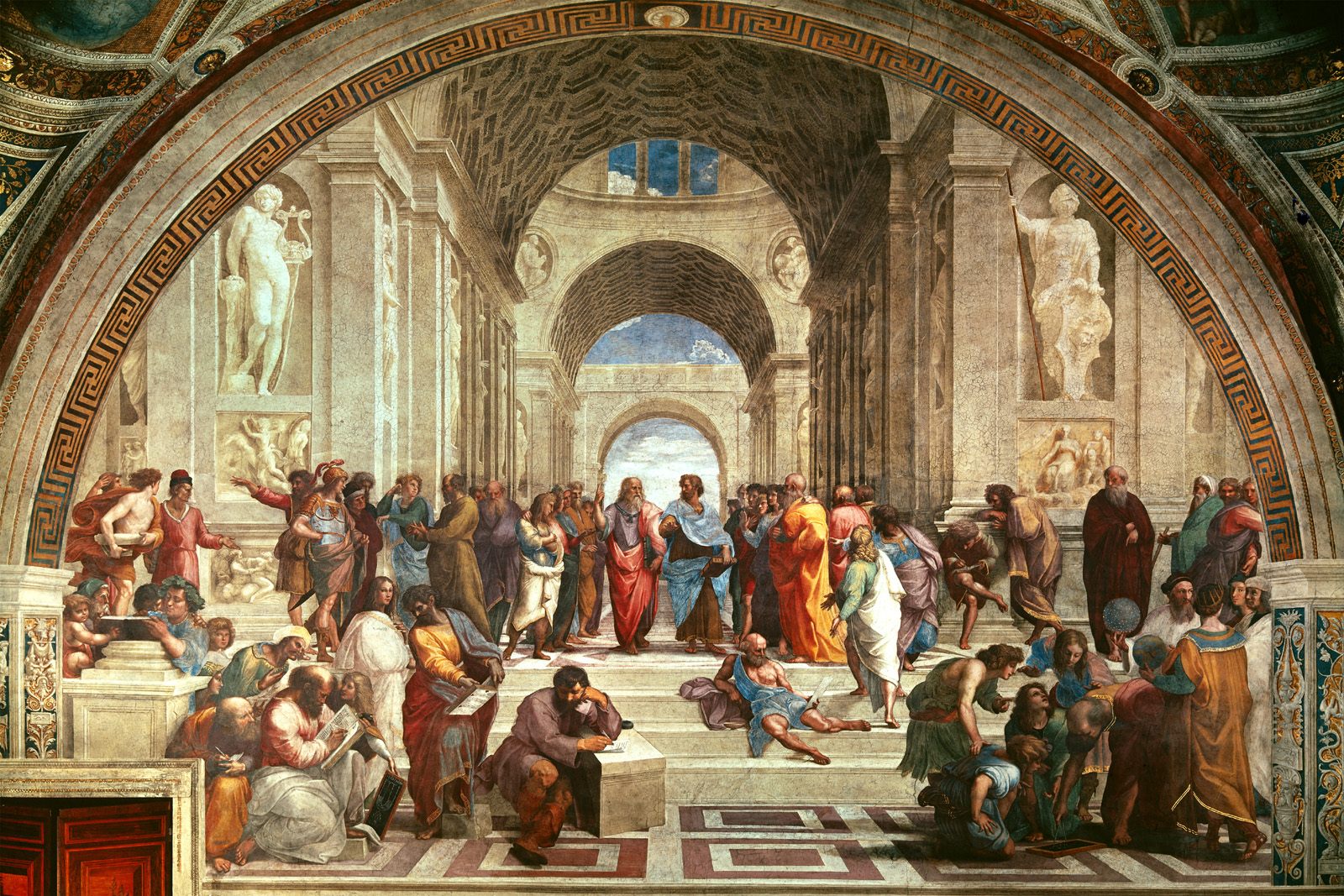“Believe those who are seeking the truth. Doubt those who find it” –
Andre Gide
We always appear to be rushing around don’t we? Consuming knowledge through books, the internet, signing onto courses, attending seminars. The disciplines of science, philosophy and religion have offered us knowledge about the cosmos, existence, and claimed them as truth. (Which we mean as ‘whatever is really the case’).
How has this effort fared? How well have we done?
Religion?
For a long time we used gods to explain things. We didn’t understand the world and so in our ignorance we dream up supernatural explanations.
But for the past three hundred years we have been turning away from religion because it comes with a whole lot of superstitious baggage. We know or feel it to be false, and it’s morals we can’t agree on or live up to.
Also, it’s explanations have not kept pace with a scientific understanding of the world.
Science?
After religion came the enlightenment. With rationality as the basis for finding answers. Thinkers like Descartes, Hume, Kant and others thought we could create a better society by using truth based upon reason. This gave us the modern world.
However, the search for objective truth through science and reason hasn’t worked either. Science is only concerned with the manifest world. We can’t be certain that our knowledge is an accurate reflection of reality beyond appearances.
Also, it’s answers are impersonal, dehumanised and tell us little of how to live our individual lives.
Friedrich Nietzsche in Birth of Tragedy claims that Greek theater and society took a downhill path when people like Socrates and Plato came along and claimed to see life in terms virtue and reason. He disagreed, life is not something that can be rationalised or simplified into rules.
Kant claimed that we can’t really know for certain anything about the objective world, the world beyond appearances (what he called the noumenal world).
Post-Modern thinkers like Derrida, Foucault, Baudrillard, who followed built upon these ideas and showed us that the truths science claimed hegemony over can be explained through the working of society. Each culture sees the world through its own lens, and whatever it creates or discovers is influenced by this viewpoint. Science seeks not individual answers but objective ones. Science we can see has its limitations because it dehumanises existence, it’s the view from nowhere, of no-one.
Despite this, science can show us how to live better lives by can informing us not of truths but their opposite. Not giving us the truth but helping us to see the illusions that contribute our suffering. This is perhaps greatest contribution science has made, debunking myths, lies, and falsehoods.
Philosophy?
Philosophy has long been used as a means to help people with their lives. Today it seems being a philosopher has become a way to spend time engaging in pointless debate about things no once cares about except other philosophers.
Philosophy has in some ways become far to removed from the concerns of ordinary people. Seeking like science, an objective understanding of reality through endless reasoning that runs into circles or argues over unimportant details.
So what we have left is the conflict between our desire to find personal truths and objective ones.
Is the truth still out there?

We find ourselves lost when it comes to objective guidance and truth.
Where is truth, where do we find it? Are we looking for our truth or a universal one?
Modern society is something of a fix. The old ways, the old ideas of God have been left behind, but nothing had taken it’s place.
We are all casting around trying to find a direction, an ethos to live by. But an all-encompassing truth doesn’t exist. Only subjective and cultural answers seem to be what we can find.
I think the biggest problem with science and some philosophy is that it thinks it can tease apart our existence to find it’s essence. To seek the core of humanity without the environmental influences (A). As well as finding the rules of the universe beyond human invention (C).
The trouble is we only have (B), man in nature, to work with.
Comedy of Errors, the Absurd
‘On the highest throne in the world, we still sit only on our own bottom’
Michel de Montaigne, The Complete Essays
So here we are left in a desperate situation. Our flailing attempts seeking answers and our persistent failure to find them. It’s what Albert Camus calls The Absurd. The ridiculous state we find ourselves. Seeking the ultimate truth and not finding it.
Douglas Adams writes about this in the Hitchhikers Guide to the Galaxy, where the great question of ‘Life the Universe and Everything’ is asked of a computer, Deep Thought. The answer is 42, a puzzling response.
Our desperate effort to write things in stone never works.
So what’s left?
Art, Literature?
Art has long talked to us about life. It’s ups and downs, sorrow and joys. It’s certainly never going to be objective like science, but it sill holds a sense of truth to it. A feeling, a humanity that sense recognize. When Munch painted the Scream, he was echoing a fear many of us feel.
Art perhaps does reveal truth, not a theoretical one that no-one would understand, but a personal one. We can find meaning and answers in the stirring words of Kipling, the suffering of Munch, the heartache of Adele.
We see something of ourselves in the art we like. A way of saying ‘I feel this too.’
Stories to have long educated us on the world around us and how to live within it. As well as providing a commentary or critique on the world, and have echoed our hopes and fears.
Practical Philosophy?
Philosophy can still help us. Not all the great thinkers we concerned with esoteric notions of truth, and ultimate reality. Some were more interested in ideas that help us in our everyday lives.
Like Socrates, Epicurus, the Existentialists of Nietzsche and Sartre. The Stoics of Seneca and Marcus Aurelius. Also Montaigne, Tolstoy, and Proust.
Philosophy of this sort still can help us today.
We need to get our heads out of the clouds and more onto the concerns of living.
Redacted religion?
Is religion still pertinent?
Modern Christianity, the at least those who are not on the far right had given up on the ideas that the Bible as a historically accurate document, making it more agreeable.
One thing I like about contemporary Buddhist writing is that the authors don’t try to get you to accept the more esoteric ideas of that religion and instead focus on things we do care about.
Emotions, suffering, death, thriving and so on.
This is redacted religion. Ignoring the bizarre even offensive extremes and embracing what we can agree on.
This may be acceptable to some, but it still seems ridiculous. If you’re no longer making claims about the truthfulness of the Bible, then at what point should you stop calling yourself a Christian?
If you can’t take the Bible literally then it’s not the divine guide you think it is.
Self constructed philosophy?
One solution I have unwittingly followed is creating a system of your own. A set of ideas taken from a variety of sources.
Grabbing useful ideas from a range of disciplines. For my part, I have found helpful ideas in Philosophy, Psychology, Sociology, Anthropology, History, Literature, Art, Science and more. It’s a syncretic approach to worldviews, the cobbling together of one’s own philosophy.
It’s a self-constructed collection of ideas that help me live a better life,
For many people including myself there seems to be nothing, no overreaching concept that explains the ethos that guides our lives.
I feel this is also perhaps a source of suffering in itself. We feel lost, set loose on a sea of ideas without and direction or clarity.
But What I’m suggesting is perhaps this is no bad thing. Why must there be a meta-narrative that guides our life?
It seems that this desire to have a single guiding framework is what causes us to make up nonsense and claim it as the truth. We want our explanations to be simple, easy to understand. Wrapped up in nice neat parcel and handed to us, because we are somewhat lazy.
Being eclectic is not a flaw. Looking for the answers from many different fields, I feel is the smart way of doing things
Conclusion
If any conclusion can be drawn from our futile search for the truth is we can’t be certain of the truth.
Like Plato’s Allegory of the Cave, or us as Brains in Vats. We could be surrounded by illusions and may never know the truth.
Such uncertainty is why questions of truth, while important to ask, are a hopeless waste of time trying to answer definitively.
Life is not a problem to be solved, but a reality to be experienced – Soren Kierkegaard
Our mission should be to find a way to terms with this.
To make the suffering, doubt, uncertainty and death if not accepted, at least acceptable.
Why are we here? What is really the case? What’s my purpose? The truth seems bitter sweet.
Life can be seen as a tragedy, as the Greeks believed. Our desperate search comes to nothing. Existence can’t be squeezed into an equation, nor does the supernatural provide a plausible answer.
It can also be seen as a heroic adventure. Trying to answer these questions had led our species to ever higher heights of knowledge, success, and has taken us into space, with more to come.
The striving we all face in our lives to make sense of it leads us to learn, work, create and build.
Truth seems to define why we work and build and play.
In that sense, truth is far from a obsolete idea. The search for it is a part of what make us what we are.
What’s your opinion?

